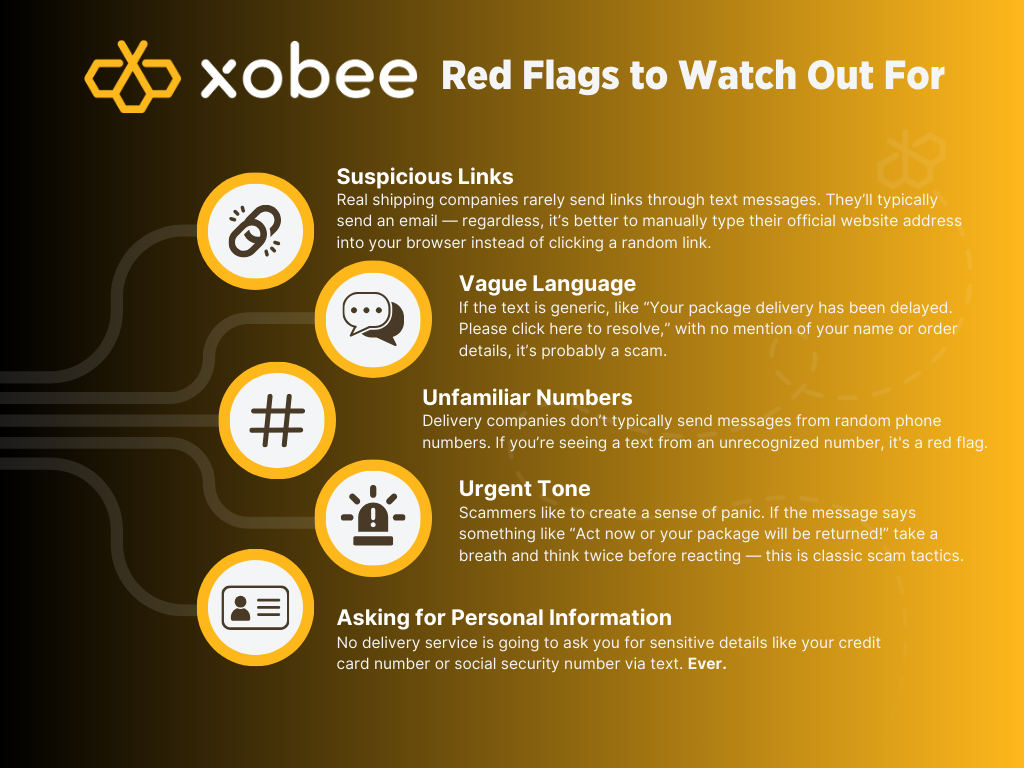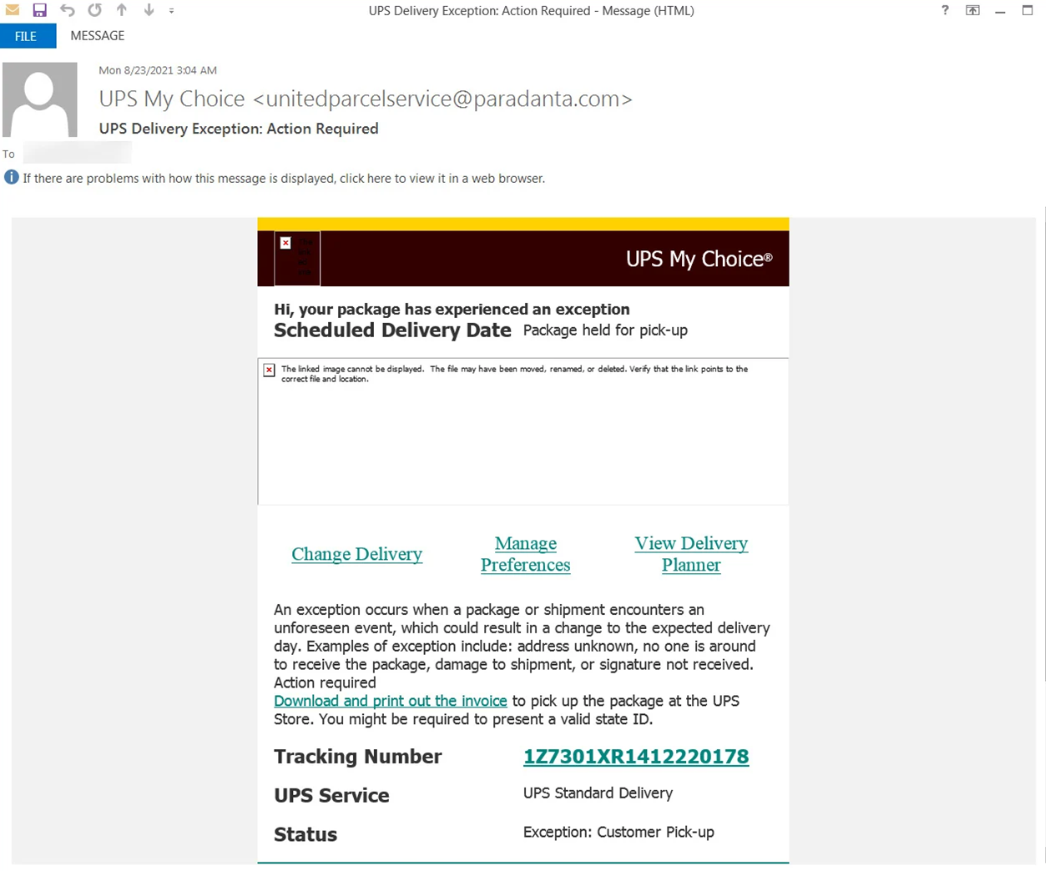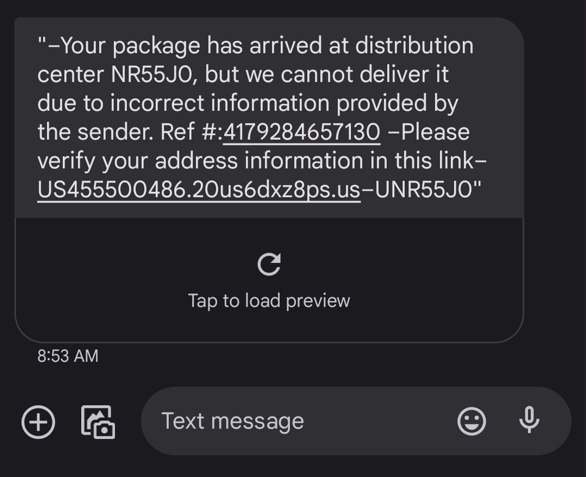FRESNO, California – Cody Sarhan, Communications Specialist
The holidays are upon us, and you know what that means — shopping. And stealing. Tons of it. You might be waiting for a precious packages to arrive right now, tracking it like a hawk, refreshing the delivery status every 10 minutes (because, clearly, that will make it come faster). But, what you might not be waiting for is a cybercriminal to send you a delivery text, only for them to steal your Christmas joy.
You’re juggling gift lists, holiday parties, and travel plans, and then *ding* a text message lands on your phone, alerting you that your package has been delayed or needs further action to complete the delivery. It feels legit — after all, you’ve probably ordered more than a few things this season, so naturally, you click on the link to resolve the issue.
Boom. The Grinch has struck, and not even Cindy Lou Who can save you.
Learn More: Find out how Xobee can safeguard your data
How These Sneaky Scammers Work
Delivery text scams are designed to take advantage of the frenzy that comes with holiday shipping. Scammers send fake messages that claim to be from well-known shipping companies like FedEx, UPS, or USPS, telling you that there’s a problem with your delivery. The message usually contains a link to “resolve” the issue.
According to a report by the Federal Trade Commission, in 2022 package delivery scams ranked among the top text scams, and are only expected to increase over the next few years.
It goes without saying (but I’m going to say it because we’re a cybersecurity company). That link doesn’t lead to your package status page — it leads straight to a phishing site. Once you’re there, it may prompt you to enter personal information like your name, address, or even credit card details. Sometimes, it’ll install malware on your device that gives hackers access to your data, passwords, or bank accounts.
Red Flags to Watch Out For
Now, I know what you’re thinking: “How am I supposed to know the difference between a real delivery text and a scam?” Good news! It’s not that hard if you know what to look for. Here are a few things that should set off your inner alarm bells:
Examples of Fake Messages
What Should You Do?
When in doubt, don’t click. Here’s how you can handle these scammy messages like a pro:
- Delete the Message. Don’t interact with the text. Don’t respond, don’t click, just hit that trash button.
- Check Manually. Go directly to the retailer or delivery service’s website and track your package using your order confirmation email. If there really is a problem, you’ll be able to handle it from there.
- Report It. You can forward scam texts to 7726 (that’s SPAM, for those of you wondering), which is the spam-reporting service run by most mobile carriers. Help keep your fellow holiday shoppers safe!
- Update Your Security. Make sure your phone and apps are up to date with the latest security patches. Consider installing security software to help detect and block phishing attempts.
- Spread the Word. Let your friends and family know about delivery text scams. The more people are aware of these tricks, the fewer victims these cyber-Grinches will claim this holiday season.
Let’s Wrap This Up (Pun Absolutely Intended)
No one wants to have their holiday spirit crushed by a scam, but the reality is, cybercriminals are getting craftier every year. The key to staying safe is staying informed and vigilant. Remember, if something feels off, trust your instincts, and never let a stranger with a suspicious link ruin your holiday fun.
At Xobee Networks, we take cybersecurity seriously, especially during times when scammers are more active. Whether you’re a business or an individual, we’ve got your back. Our cybersecurity solutions can help protect your network from these phishing attempts and other online threats. Because nothing says “happy holidays” like peace of mind.
Xobee Networks now has engineers servicing clients within Fresno, Clovis, Madera, San Jose, Sacramento, San Francisco & the Bay Area, Los Angeles, Santa Monica, Las Vegas, Bakersfield, San Diego, San Luis Obispo, Anaheim, Palm Springs, and more.
Cody Sarhan | Communications Specialist, Xobee Networks



